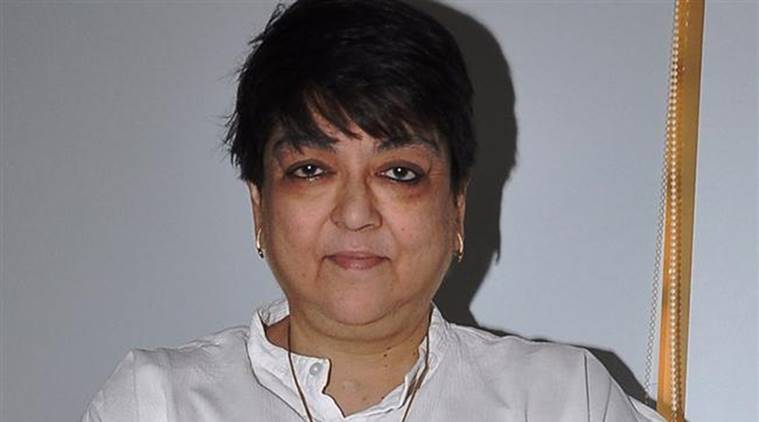 Kalpana Lajmi passed away on Sunday morning.
Kalpana Lajmi passed away on Sunday morning.
The cinematic CV of Kalpana Lajmi, who died at 64 on September 23 after a long battle with kidney cancer, is short but important. Firstly, we ought to celebrate her because in Bollywood there are barely any female directors. Along with Sai Paranjpye, Mira Nair and Aparna Sen, Lajmi was one of the few women filmmakers to demolish the status quo. The other reason for celebrating Lajmi’s work is that her films espoused the female cause. Would you label her a feminist? Perhaps. But she was also deeply in love with a man to whom she dedicated her life. Feminism for her did not mean male hatred and distrust. But, we will come to her fiercely unconventional relationship with Bhupen Hazarika later.
Best known for Rudaali (1993), in which she cast Dimple Kapadia against type, Lajmi proved herself with that film as a sensitive filmmaker who could handle bold subjects with aplomb. Based on Mahasweta Devi’s short story, Rudaali follows the life of an oppressed widow (Kapadia) in a Rajasthani village. Through the film, Lajmi tackles the social custom of lower-caste women professional mourners (rudaali) who are employed to weep at upper-caste funerals. While Kapadia’s Sanichari (so named for being born on a Saturday) is depicted as a typical sacrificing Indian woman, Lajmi contrasts her story with that of Bhikni played by Rakhee. Unlike Sanichari, Bhikni lives an adventurous life unafraid of expressing her sexual desires. She does not fit into the conventional structure. The fact that she could be Sanichari’s mother who had abandoned her, gives the story its symbolic zing. Less deftly handled, the subject of Rudaali could have easily fallen into just another high-brow abstraction.
Lajmi’s later films also contained a social message. 2001’s Daman, in which she tried to cast Raveena Tandon in a different light, gave the actress her first National Award. Once again, the subject involved a lower-caste woman, set in Assam.
Also Read | Filmmaker Kalpana Lajmi passes away
Unapologetic about love
“I made only six feature films in these many years because for me his work was the priority,” Lajmi told The Telegraph newspaper in 2011. She was obviously referring to her constant companion Bhupen Hazarika. Her entire life centred around Hazarika. Lajmi first met the legendary Assamese musician in 1971. She was only 17 and he, 45. When they first started seeing each other, people mistook her for his manager. Though Lajmi’s mother, artist Lalita Lajmi, was against her daughter’s relationship with a much-older man, Lajmi was inevitably in awe of the singer. She moved in with him and looked after the ailing Hazarika all through his old age. Hazarika died at 85 in 2011. Reportedly, he offered to marry Lajmi but she refused. When quizzed by The Telegraph about marriage, she remarked, “I gradually realised that he would never have made a good husband for anyone.” So, instead, they lived-in and never married.
Lajmi, who is the late Guru Dutt’s niece, started her career making TV series and documentaries. But of late, it was believed, she was struggling to get backers for her films. She made headlines last year when news of her kidney ailment surfaced. The film industry promptly came forward to help. Aamir Khan, Karan Johar, Salman Khan, Alia Bhatt, Lata Mangeshkar and Rohit Shetty were those who rushed to her aid, promptly taking care of the hospital tab.
Saddened at her death, director Hansal Mehta who had worked as an editor with Lajmi on Darmiyaan tweeted that he “will always remember her with fondness and respect for being a fearless woman and a powerhouse of a person in a male dominated industry.” A radical filmmaker and mould-breaker both in her professional and personal life, Kalpana Lajmi pushed the envelope and explored subjects that Bollywood wouldn’t dare touch.
The maverick Lajmi’s presence on the cultural scene will be missed.